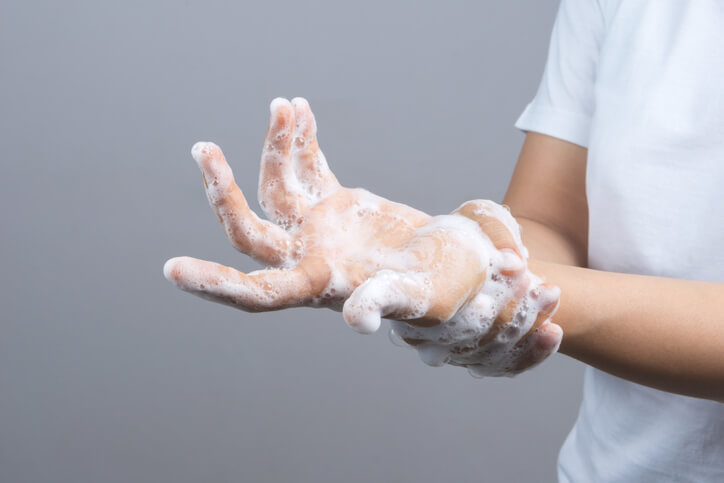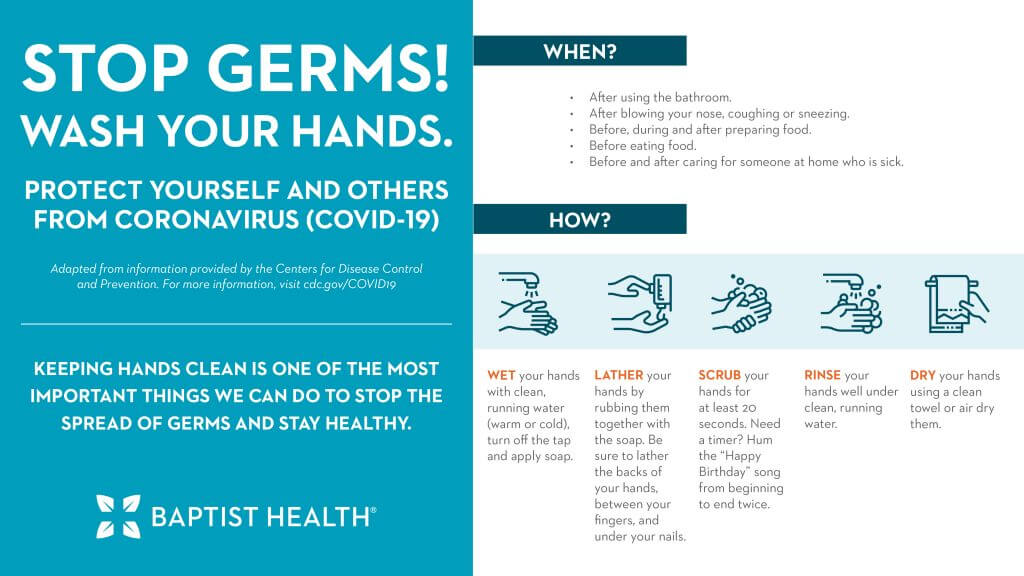Don’t let the fear of exposure prevent you from getting the care you need.
Connect with a Baptist Health provider from the comfort of your own home.

Washing your hands properly and frequently is one of the most important things you can do to protect yourself from the virus that causes COVID-19. Hands are the most common ways in which microorganisms such as bacteria and viruses can be transported and subsequently cause infection, especially to those who are most susceptible to infection.
Social hand washing, or routine hand washing, is the frequent, proper washing of hands to promote health and prevent the spread of dangerous microorganisms or viruses. Cleaning your hands every chance you get is one of the most effective ways to prevent the spread of disease.
Teaching people about the proper hand washing technique has been found to:

Wash your hands often with soap and water for at least 20 seconds, especially after you’ve been in a public place, or after blowing your nose, coughing, or sneezing. To properly wash your hands, follow these five steps:
If soap and water aren’t available, use a hand sanitizer that has at least 60% alcohol. Cover all surfaces of your hand and rub them together until they feel dry. This should take at least 20 seconds.
Note: Avoid touching your eyes, nose, or mouth with unwashed hands.
Proper hand washing is recommended any time you come into contact with surfaces that are touched frequently by others and before or after certain activities. Of course, while frequent, effective hand washing is advised, you should try to find the right balance so that you don’t spend too much time at the sink.
Connect with a Baptist Health provider from the comfort of your own home.
In addition to the proper hand washing techniques described above, these are things you should always do when washing your hands:
Don’t do the following when washing your hands:
There are important differences between washing hands with soap and water and cleaning them with hand sanitizer. Washing your hands with soap and water is the best way to properly clean your hands and protect yourself from the virus that causes COVID-19. Alcohol-based hand sanitizers don’t kill all types of germs, including norovirus and some parasites that affect the stomach, but they’re better than nothing if soap and water aren’t readily available.
If your hands are not visibly dirty or greasy, hand sanitizer is a convenient alternative to hand washing when soap and water are not available.
The preferred method of hand hygiene and preventing the spread of infections and decrease the risk of getting sick is by washing your hands with plain soap and water. If soap and water aren’t an option, the CDC recommends the use of an alcohol-based hand sanitizer that contains at least 60% alcohol.
To learn more about COVID-19 symptoms, prevention, and social distancing, please visit Baptist Health’s COVID-19 Facts and Resources page.
Trust Baptist Health to provide you with the reliable information you need to keep you and your family safe.
Click for More
Sources:
CDC
WHO (World Health Organization)
Arrow Scientific